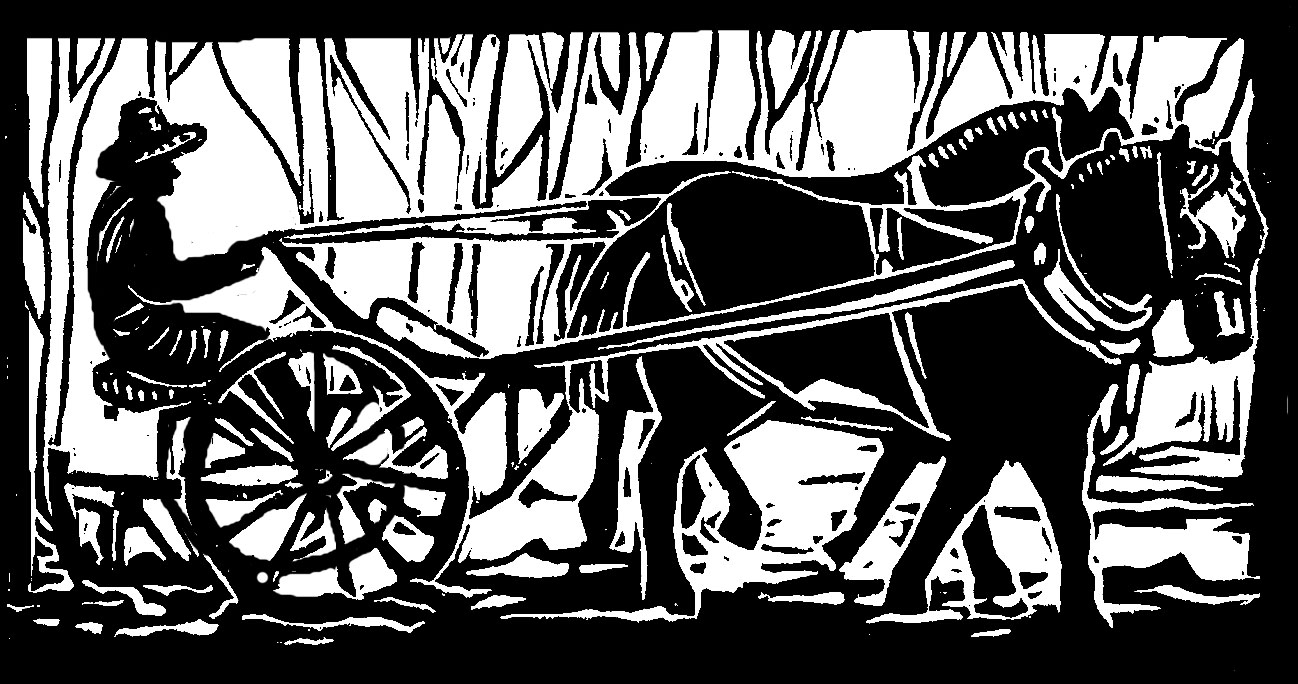It's fun to be a vegetable farmer in December, when the work goes from frantic to pleasant. Moving from a high of 14 to 16 hours of outside work a day in July to the lovely four or five hours a day in December is a very welcome change.
This is when, if it's not raining or snowing, we roll up irrigation and pull the dead stalks out of the garden beds and fix machinery: that broken foot board on the spreader, for example, which has given me fits all summer, when I saw my fellow farmer teetering his way up to the seat, using the tire and the thin metal edge of the support that should be holding an intact foot board in place.
“We have to fix this before we need the spreader again,” I would say, with great determination, but once the loads of compost were spread, we were sucked into the next whirlpool of transplanting or watering or weeding, and there we would be, the very next time with the spreader: my fellow teetering, and me worrying.
Of course, when the horses decided to go ahead just a little sooner than they should, this only compounded the problem, as the spreader lurched forward and my fellow pretty much fell on to the seat. This is much better than falling off the seat, and then falling under the spreader, which, I am very glad to report, has not happened. But it could, and I am very pleased when December comes, and we have enough time to take on this repair project.
We are also busy (well, sort of busy, four or five hours a day busy) this time of year repairing our greenhouses, replacing the hipboards and baseboards. This is in hopes that we won't have the experience of a few years ago when a big windstorm nearly took away my greenhouse and my fellow farmer, who was trying to hold the greenhouse down in the big wind. The combination of rotting hip and baseboards, a rip in the plastic, and a big wind was not a good one. Then, as hard as it is to believe, this all happened again, the next year, with the next greenhouse in the line. Perhaps we finally learned something, because this year, in spacious December, we are replacing the boards in the third and fourth greenhouses before an emergency, instead of in the middle of an emergency.
This time of year is also when, if it is raining or snowing (oh December joy! we don't have to work outside in the rain or cold whether we feel like it or not, as we must in July), we also work on the insides of the greenhouses. We unhook all those millions of little clips that held the tomatoes upright on their strings. We cut down the strings. We pull out the rows of dead plants, and pile them up to compost. We dig the beds, pull any weeds, and then add finished compost to the soil. It's a good amount of work, but it is all delightfully non-urgent this time of year, and there is the wonderful feeling that anything we do now will only help us next spring.
Anything we do now will only help us in the spring! I like that. A lot. Especially when “anything” includes paying our bills on time, and catching up on farm paperwork, and planning for next year. It includes setting our farm kitchen back to rights, and making leisurely meals, and eating those leisurely meals. It includes getting enough sleep, and taking a moonlit walk in the fields, which happens as early as 5:30 or 6 p.m. in this season, giving us plenty of time for the meal and the sleep, and the meal and the sleep are even more restful because of the walk and the moonlight in the fields.
Of course, we love that sun, that strong sun that shone on us and our vegetables and our hayfields in July, for so many hours, that in combination with rain and soil and air make our farming and all our lives possible. We love that sun all year long, warming us up in December too.
But we also love that that moon, rising over the trees, that subtler, softer light, a radiance that reminds us that night and darkness and quietness and stillness and rest and repairs are essential too, a part of the rhythm that sustains us all.
Originally published in the Monadnock Shopper News, Dec 16 – Dec 22, 2020
